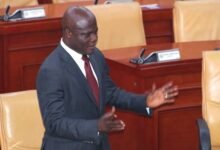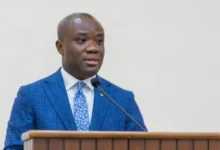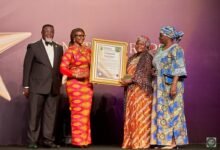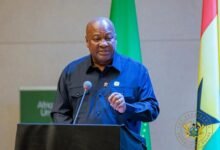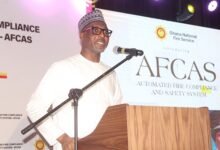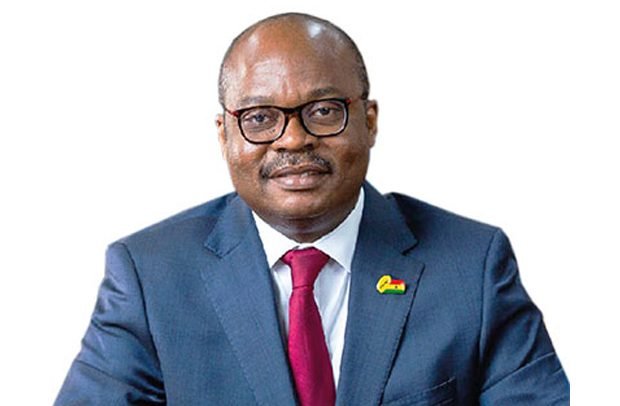
The Governor of the Bank of Ghana, Dr Ernest Addison, has called for strong collaboration between the International Monetary Fund (IMF) and the World Bank in helping addressing the fiscal challenges facing Africa.
He said the IMF and the World Bank should coordinate their support to develop resilient fiscal policies, considering Africa’s diverse needs.
Speaking at the 2022 Africa Caucus meeting the Managing Director of the IMF, Kristalina Georgieva, on the sidelines of the recent IMF/World Bank Annual Meetings in Washington DC in America, Dr Addison stated that programmes of the IMF and the World Bank should account for regional specificities to ensure sustainable and impactful reforms that did not disproportionately affect vulnerable populations.
The programme, attended by governors of some African countries, was on the theme: ‘Overcoming Fiscal Challenges in Africa.’
Dr Addison also noted that the continent faced numerous fiscal challenges, including debt vulnerabilities, weak domestic revenue mobilisation, and limited access to international capital markets, exacerbated by the pandemic, geopolitical tensions, and climate-related shocks.
Additionally, he indicated that the African Development Bank estimated that Africa needed up to $170 billion annually for infrastructure, with a financing gap of up to $108 billion.
“The rising ratio of interest payments to revenue since the early 2010s has compromised investment in essential services, leaving about half of Sub-Saharan African countries at high risk or already in debt distress by the end of 2023,” Dr Addison, stated, adding that, “Overcoming these challenges requires a multifaceted approach combining domestic reforms with stronger international support.”
Proffering a raft of suggestions to help address Africa’s fiscal challenges, Dr Addison stressed that the IMF’s support should remain flexible, adapting to global conditions and country-specific needs, while ensuring sufficient resources.
The Governor of BoG called for tailored and enhanced technical support from the Fund and other international partners to strengthen institutional capacity in Africa, saying this was is a key prerequisite to address the underlying causes of fiscal challenges and other bottlenecks to achieve durable and inclusive economic growth in member countries.
The Fund, through the GSDR, he said, should also explore innovative financing solutions—such as blended finance, and debt-for-climate swaps via enhanced RSF—to address both the continent’s debt vulnerabilities and climate change risks.
He then called for greater private sector involvement in the Common Framework to ensure Comparability of Treatment and faster progress on debt resolution initiatives.
In a related development, the BoG in collaboration with the organisers of the DC Fintech Week 2024, hosted a high-level leaders networking event on the sidelines of the IMF Spring Meeting.
The objective of the programme was to amplify the need for the global community to foster collaboration with Ghana and Africa at large to harness the potential of financial technology (fintech).
The First Deputy Governor of BoG, Dr Maxwell Opoku-Afari, led the discussions at the event, and Hajia Alima Mahama, Ghana’s Ambassador to the United States of America, was the Guest of Honour.
The guided discussion was led by Professor Chris Brummer (founder of the DC FinTech Week), Charla Ouertatani, Staff (Director, House Financial Services Committee), Mr Kwame A. Oppong (Director of FinTech and Innovation, Bank of Ghana) and Mr Dante Disparte (Chief Strategy Officer and Head of Global Policy of Circle).
BY KINGSLEY ASARE



